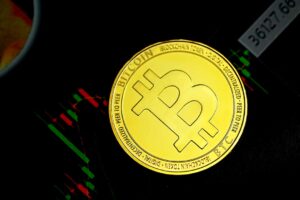The foreign exchange market, or forex, is a global decentralized market where currencies are traded. It is the largest and most liquid market in the world, with an average daily trading volume of over $6 trillion. The forex market is influenced by a wide range of factors, including economic and political events. In this article, we will explore the impact of political and economic events on forex currencies.
Political events can have a significant impact on forex currencies. Political stability is crucial for attracting foreign investment and maintaining a strong currency. When a country experiences political turmoil, such as protests, riots, or government instability, investors become uncertain about the future of the country and its currency. As a result, they may withdraw their investments, leading to a depreciation in the currency’s value.
For example, let’s consider the impact of the Brexit referendum on the British pound. In June 2016, the United Kingdom voted to leave the European Union, causing political uncertainty and economic concerns. The announcement of Brexit led to a sharp decline in the value of the British pound against other major currencies. Traders and investors were uncertain about the future of the UK economy and its trade relationships, leading to a sell-off of the pound.
Similarly, political events in the United States can have a significant impact on the US dollar. The outcome of presidential elections, for instance, can influence the direction of fiscal and monetary policies, which in turn affect the value of the dollar. Changes in tax policies, government spending, and trade agreements can all impact the currency’s value. Traders closely monitor political developments and adjust their trading strategies accordingly.
Economic events also play a crucial role in shaping forex currencies. Economic indicators, such as GDP growth, inflation rates, and employment figures, provide insights into the health of an economy. Positive economic data often leads to an appreciation in the currency, as it signals a strong and growing economy. On the other hand, negative economic data can lead to a depreciation in the currency’s value.
Central bank decisions also have a significant impact on forex currencies. Central banks have the power to influence interest rates, money supply, and exchange rates. For example, when a central bank raises interest rates, it attracts foreign investments, leading to an increase in the value of the currency. Conversely, when a central bank cuts interest rates, it stimulates borrowing and spending, but can also lead to a depreciation in the currency’s value.
One notable example of the impact of economic events on forex currencies is the financial crisis of 2008. The collapse of major financial institutions, such as Lehman Brothers, and the subsequent global economic downturn had a profound impact on forex currencies. Safe-haven currencies, such as the US dollar and the Japanese yen, appreciated significantly as investors sought refuge from the turmoil in other currencies.
In conclusion, political and economic events have a significant impact on forex currencies. Political stability, or the lack thereof, can lead to volatility in currency markets. Similarly, economic indicators and central bank decisions shape the value of forex currencies. Traders and investors closely monitor these events and adjust their trading strategies accordingly. Understanding the impact of political and economic events is crucial for successful forex trading.





